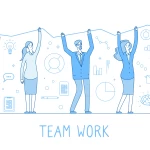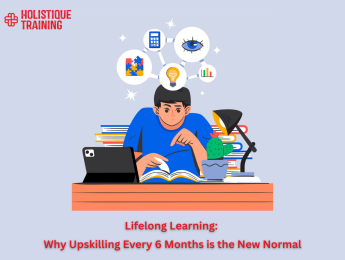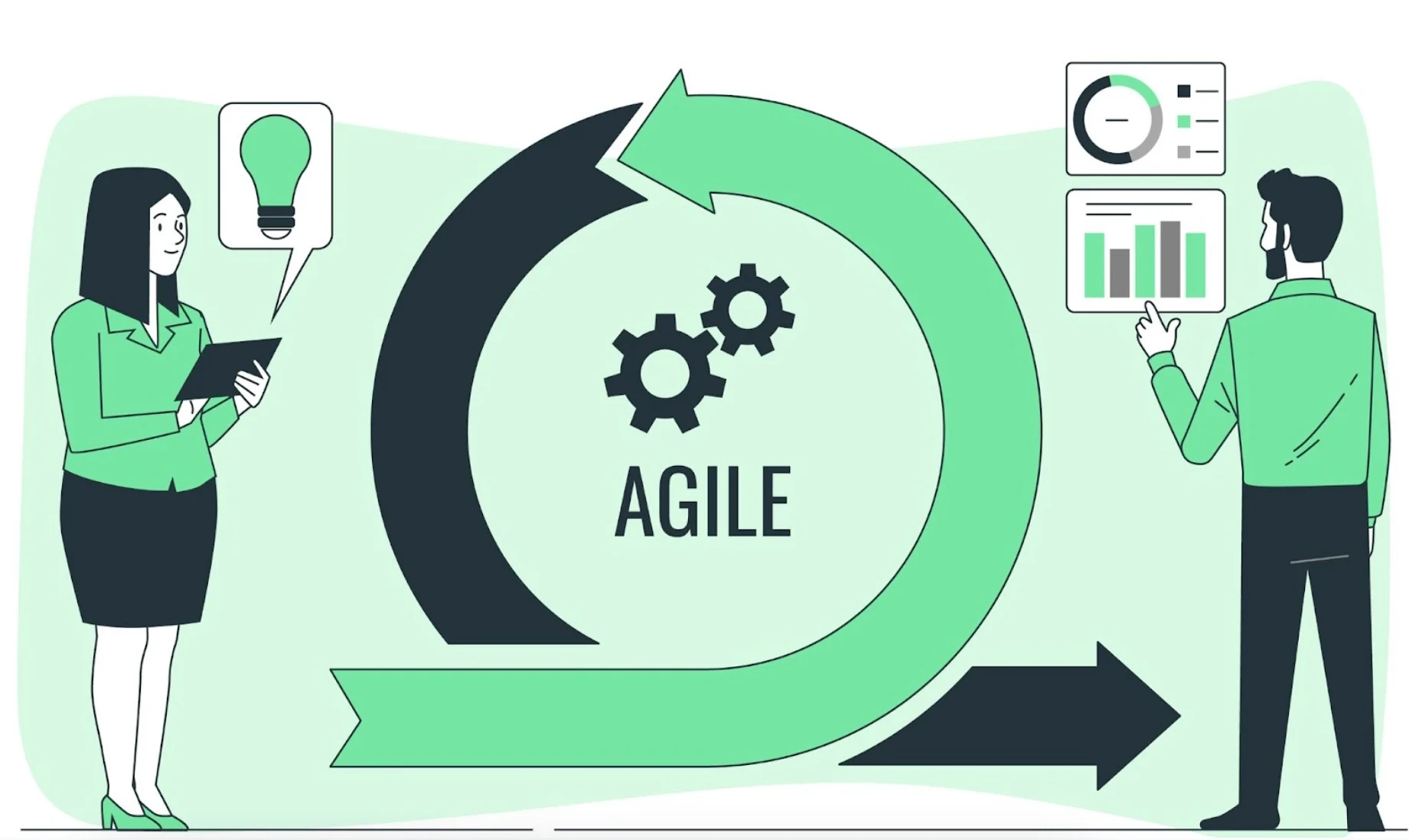- Table of Contents
- Introduction
- Why Is Meeting Management Important?
- Time Optimisation
- Decision-Making and Problem-Solving
- Communication and Alignment
- Collaboration and Teamwork
- Accountability and Follow-up
- Employee Engagement and Satisfaction
- Challenges of Meeting Management
- 1. Technology Issues
- 2. Time Zone Differences
- 3. Balancing Inclusivity in Virtual Meetings
- 4. Meeting Fatigue
- 5. Lack of Preparation
- 6. Overcoming Resistance to Change
- 7. Maintaining Engagement in Virtual Settings
- 8 Tips for Productive and Effective Meetings
- 1. Clearly Define the Meeting Objective
- 2. Prepare an Agenda
- 3. Invite Relevant Participants
- 4. Set Time Limits
- 5. Embrace Technology
- 6. Encourage Active Participation
- 7. Follow Up with Action Points
- 8. Evaluate and Iterate
- Meeting Management in 2023: How Is It Changing?
- Let’s End the Debate: Are Some Meetings Really Unnecessary and Can Easily Be an Email Instead?
- Emerging Trends in Meeting Management
- 1. AI-Powered Meeting Assistants
- 2. Virtual Reality Meetings
- 3. Sustainable Meeting Practices
- The Future of Meeting Management: Predictions and Projections
- 1. Personalised Meeting Experiences
- 2. Integration of Augmented Reality (AR)
- 3. Enhanced Security Measures
- Conclusion
Introduction
Effective communication and collaboration have become critical factors in achieving organisational success as the business landscape evolves. In this context, meetings are pivotal in facilitating idea-sharing, decision-making, and teamwork. However, without proper management, meetings can easily become unproductive and time-consuming. In this blog post, we delve into the significance of meeting management, provide practical tips for optimising meeting productivity, and examine the changing dynamics of meeting management in 2023.
Why Is Meeting Management Important?
Meeting management is paramount for organisations to maximise their resources, enhance productivity, and foster a culture of collaboration. Here are several key reasons why effective meeting management holds significant value:
Time Optimisation
In the contemporary, fast-paced work environment, time is a currency that organisations cannot afford to squander. Poorly managed meetings can easily turn into time-consuming endeavours that yield minimal results. Effective meeting management ensures that every minute invested in a meeting is purposeful, focused, and contributes to tangible outcomes. Organisations can optimise their resources and minimise time wastage by setting clear objectives, preparing comprehensive agendas, and strictly adhering to time limits.
Decision-Making and Problem-Solving
Meetings serve as crucibles for collective decision-making and problem-solving. In a well-managed meeting, participants can discuss complex issues, exchange diverse perspectives, and arrive at informed decisions. The structured nature of meetings, combined with active participation and open dialogue, enables teams to harness their collective intelligence, leading to well-informed conclusions. Effective meeting management transforms these gatherings into powerful engines for strategic decision-making.
Communication and Alignment
Clear and effective communication is the linchpin of organisational success. Meetings provide a unique platform to disseminate critical information, align goals, and ensure every team member is on the same page. Organisations can share updates through well-managed meetings, discuss strategic initiatives, and align team members towards common objectives. This promotes transparency and minimises miscommunication, fostering a shared understanding of organisational priorities.
Collaboration and Teamwork
Collaboration is the backbone of successful teamwork. Meetings bring team members together, allowing them to share ideas and insights and collaborate on projects. Effective meeting management ensures active participation, giving all team members a voice and promoting a supportive environment where diverse perspectives can be explored. Cultivating a collaborative atmosphere enhances creativity and strengthens the bonds within the team, creating a sense of collective ownership.
Accountability and Follow-up
Meeting management plays a crucial role in fostering accountability within an organisation. By meticulously documenting key decisions, action points, and responsibilities, meetings provide a reference for participants to track progress and ensure timely execution of tasks. The follow-up on action items post-meeting ensures that discussions are translated into tangible outcomes, nurturing a culture of accountability that drives productivity and success.
Employee Engagement and Satisfaction
Engaged and satisfied employees are the bedrock of a thriving organisation. Well-managed meetings contribute significantly to higher employee engagement and satisfaction. Meetings that encourage active participation, value input from all team members, and provide opportunities for growth and development can boost morale and job satisfaction. When employees perceive their time is valued and utilised effectively, they are more likely to be motivated, engaged, and committed to their work.
In summary, meeting management is not merely about scheduling and conducting gatherings. It is a strategic imperative that optimises time, facilitates effective communication and decision-making, promotes collaboration, ensures accountability, and enhances employee engagement. Organisations that prioritise and implement sound meeting management practices are better positioned to harness the full potential of their meetings, driving productivity and success in their work processes.
Challenges of Meeting Management
While effective meeting management is crucial for organisational success, it comes with its share of challenges. Identifying and addressing these challenges is essential for ensuring that meetings contribute positively to productivity and collaboration. Here are some common challenges associated with meeting management:
1. Technology Issues
Reliance on technology, especially in virtual meetings, introduces potential technical glitches. Issues such as poor internet connectivity, software malfunctions, or hardware failures can disrupt the meeting flow, leading to frustration and wasted time. Organisations must invest in reliable technology solutions and have contingency plans to swiftly address technical challenges.
2. Time Zone Differences
In an era of globalised workforces, coordinating meetings across different time zones has become a significant challenge. Scheduling becomes intricate, and participants may struggle with attending meetings at non-standard hours, impacting their engagement and overall effectiveness. Meeting organisers must consider time zone differences when planning meetings, employing tools that facilitate scheduling across diverse geographic locations.
3. Balancing Inclusivity in Virtual Meetings
Virtual meetings can inadvertently create an environment where some participants feel excluded or find it challenging to voice their opinions. Balancing inclusivity in virtual settings requires intentional efforts, such as utilising collaboration tools that encourage equal participation, setting norms for video engagement, and proactively seeking input from all attendees.
4. Meeting Fatigue
The prevalence of back-to-back meetings can contribute to meeting fatigue among participants. Constantly shifting from one meeting to another can lead to burnout, reduced attention spans, and diminished overall productivity. Organisations should be mindful of the frequency and duration of meetings, prioritising quality over quantity and allowing sufficient breaks between sessions.
5. Lack of Preparation
Meetings are only as effective as the preparation that precedes them. Participants who join meetings without adequate preparation can hinder progress and lead to unproductive discussions. To address this challenge, organisers should communicate agendas in advance, provide necessary materials, and encourage participants to come prepared, fostering an environment where meetings are focused and purposeful. In fact, statistics show that approximately 72% of professionals emphasise the paramount importance of clear objectives for a successful meeting, while 67% highlight the significance of a well-defined agenda as the most crucial factor.
6. Overcoming Resistance to Change
Implementing new meeting management practices or introducing technology-driven solutions may face resistance from team members accustomed to traditional methods. Overcoming resistance to change requires effective communication, training programmes, and demonstrating the tangible benefits of adopting new meeting approaches. Leaders are crucial in guiding the transition and promoting a culture that embraces innovation in meeting management.
7. Maintaining Engagement in Virtual Settings
Virtual meetings can struggle to maintain the same level of engagement as face-to-face interactions. Distractions, multitasking, which apparently 73% of people do, and the absence of non-verbal cues challenge keeping participants fully engaged. To tackle this, organisers should employ interactive elements, encourage active participation, and periodically vary the meeting format to sustain interest and engagement.
Addressing these challenges requires a holistic approach that combines thoughtful planning, technology integration, and a keen understanding of the unique dynamics of both in-person and virtual meetings. Organisations proactively tackling these challenges are better positioned to create a meeting environment that maximises productivity and fosters effective collaboration.
8 Tips for Productive and Effective Meetings
Now that we understand the significance of meeting management, let's explore eight practical tips to ensure productive and effective meetings in the workplace.
1. Clearly Define the Meeting Objective
Before even thinking about scheduling a meeting, it's crucial to identify its purpose and set specific goals. Clarify your aim during the meeting and communicate these objectives to participants. This ensures everyone is on the same page from the outset, fostering focused discussions that contribute to tangible outcomes.
2. Prepare an Agenda
A well-structured agenda serves as the roadmap for a successful meeting. Share the agenda with participants in advance, allowing them to come prepared and contribute effectively. Prioritise agenda items based on their importance, allocate appropriate time to each item, and communicate the agenda well in advance to set clear expectations for the meeting.
3. Invite Relevant Participants
The success of a meeting often hinges on the people in attendance. Only invite individuals whose presence is necessary for achieving the meeting's objectives. This prevents information overload and ensures that the discussion remains relevant and focused. Selecting the right participants is a critical aspect of effective meeting management.
4. Set Time Limits
Establishing time limits for each agenda item is a powerful tool for promoting efficiency. It prevents meetings from running over schedule and encourages participants to stick to the allotted time for their contributions. This ensures that discussions stay on track and signals a commitment to respecting everyone's time.
5. Embrace Technology
In the digital age, leveraging technology is imperative for streamlined meeting processes. Virtual meeting solutions, collaborative document-sharing platforms, and real-time note-taking tools can significantly enhance productivity. Embrace technology that aligns with your organisational needs and facilitates seamless communication and collaboration.
6. Encourage Active Participation
Create an inclusive environment where all participants feel comfortable contributing their ideas and opinions. Encourage active listening, ask open-ended questions, and ensure quieter voices are heard. This promotes a collaborative atmosphere and unlocks the team's diverse perspectives, leading to more innovative solutions.
7. Follow Up with Action Points
After each meeting, summarise the key decisions, action points, and responsibilities. Share these meeting minutes promptly with participants, ensuring clarity and accountability for follow-up actions. This provides a record of the meeting and serves as a roadmap for the team's next steps.
8. Evaluate and Iterate
Continuous improvement is the hallmark of effective meeting management. Regularly assess the effectiveness of your meetings by seeking feedback from participants. Use this feedback to identify areas for improvement and refine your meeting management practices over time. This commitment to ongoing improvement ensures that your meetings evolve to meet the changing needs of your organisation.
Incorporating these tips into your meeting management strategy can transform routine gatherings into dynamic, goal-oriented discussions. By setting clear objectives, embracing technology, and fostering active participation, organisations can ensure that their meetings are productive and contribute significantly to achieving overarching goals.
Meeting Management in 2023: How Is It Changing?
Meeting management practices are evolving as we embrace the digital age and remote work becomes more prevalent. Virtual meetings have become the norm, enabling geographically dispersed teams to connect and collaborate seamlessly. However, this shift also brings its own set of challenges, such as technology glitches, distractions, and time zone differences. Effective meeting management in 2023 requires adapting to these changes by leveraging collaboration tools, setting clear guidelines for virtual meetings, and ensuring inclusivity and engagement for remote participants. We will discuss all of this in depth in a minute. To ensure you effectively manage meetings in this era, make sure to enrol in our class ‘Technological Leadership for the Digital Era’.
Let’s End the Debate: Are Some Meetings Unnecessary and Can Easily Be an Email Instead?
The debate around whether some meetings could be replaced by more efficient communication methods, such as emails or instant messaging, continues to be a topic of discussion. While it's true that not all discussions require a formal meeting, face-to-face or virtual meetings have distinct advantages. Meetings offer a platform for nuanced discussions, effective collaboration, and real-time feedback. They promote engagement, relationship building, and the exchange of non-verbal cues often lost in written communication. However, it is essential to strike a balance and evaluate the necessity of meetings on a case-by-case basis. According to the latest meeting statistics from Zippia in 2023, a whopping 65% of employees express that frequent meetings hinder their ability to concentrate on and successfully accomplish their tasks. So, when a quick update or decision can be effectively communicated via email or other means, opting for the most efficient method is prudent.
Emerging Trends in Meeting Management
In the dynamic landscape of meeting management, staying abreast of emerging trends is crucial for organisations aiming to optimise collaboration, enhance productivity, and adapt to the evolving needs of the workforce. Here are some key emerging trends that are shaping the future of meeting management:
1. AI-Powered Meeting Assistants
One of the most notable trends is the integration of Artificial Intelligence (AI) into meeting management. AI-powered meeting assistants are revolutionising the administrative aspects of meetings. These intelligent assistants can automate tasks such as scheduling, transcribing discussions in real-time, and even providing insights into meeting effectiveness. By handling routine tasks, AI frees up human participants to focus on more strategic and creative aspects of the meeting, streamlining the overall process.
2. Virtual Reality Meetings
As technology continues to advance, the concept of virtual reality (VR) meetings is gaining traction. This innovative approach allows participants to engage in lifelike, immersive meetings regardless of their physical location. VR meetings go beyond traditional video conferencing, offering a more interactive and dynamic experience. This trend addresses remote collaboration challenges and opens new possibilities for engaging discussions, training sessions, and product demonstrations.
3. Sustainable Meeting Practices
In an era marked by a heightened focus on environmental sustainability, there's a growing emphasis on adopting eco-friendly meeting practices. Organisations are reevaluating the environmental impact of their meeting activities and seeking ways to minimise their carbon footprint. This includes reducing the need for travel through virtual meetings, transitioning from paper-based to digital documentation, and implementing energy-efficient technologies in meeting spaces. Sustainable meeting practices align with broader corporate social responsibility initiatives and contribute to a more environmentally conscious organisational culture.
Practice | Description |
Virtual Meetings | Reducing the need for travel by conducting meetings virtually. |
Digital Documentation | Minimising paper usage by transitioning to digital documentation. |
Energy-Efficient Technologies | Implementing technologies that reduce energy consumption in meeting spaces. |
Table 2: Sustainability Practices in Meeting Management
The Future of Meeting Management: Predictions and Projections
1. Personalised Meeting Experiences
The future of meeting management is likely to be characterised by personalised meeting experiences. AI algorithms may analyse individual work preferences, communication styles, and meeting habits to tailor meeting structures and formats. This customisation enhances participant engagement by aligning meetings with individual preferences, leading to more productive and meaningful interactions.
2. Integration of Augmented Reality (AR)
Augmented Reality (AR) is poised to play a significant role in the future of meetings. Integrating AR into meetings can enhance collaboration by overlaying digital information onto the physical environment. This could revolutionise presentations, data visualisation, and collaborative problem-solving, providing a more immersive and interactive meeting experience. AR has the potential to blur the lines between physical and digital spaces, creating innovative and engaging meeting environments.
3. Enhanced Security Measures
With the increasing reliance on virtual meetings and the exchange of sensitive information, there is a growing need for enhanced security measures. The future of meeting management will likely see advancements in encryption technologies, secure authentication processes, and robust cybersecurity protocols. Protecting confidential discussions and data exchanged during meetings will be an organisation's top priority, ensuring a secure and trustworthy virtual collaboration environment.
In conclusion, the emerging trends in meeting management reflect the ongoing fusion of technology, sustainability, and personalised experiences. Organisations that embrace these trends and incorporate them into their meeting management strategies will be better positioned to navigate the evolving landscape of work and collaboration, driving innovation and success in the future.
Conclusion
Effective meeting management is a cornerstone of organisational success, enabling effective communication, collaboration, and decision-making. By implementing the above tips, organisations can transform their meetings into productive and efficient forums for driving innovation and achieving goals. As meeting management practices continue to evolve in the digital era, adapting to new technologies and embracing inclusive virtual collaboration will be key to unlocking the full potential of meetings in 2023 and beyond.
In navigating the evolving landscape of meeting management in the digital era, staying ahead requires a proactive approach and cutting-edge skills. Our course, ‘Changing Leadership Practices Post Covid-19,’ is tailor-made to equip leaders with the tools and insights needed to master the intricacies of modern meeting management. From harnessing the power of technology for seamless virtual collaboration to fostering inclusivity in a globalised workspace, this course offers a transformative learning experience. Elevate your leadership capabilities and lead your organisation confidently into the future of work. Enrol now and be at the forefront of shaping the future of meetings in the post-COVID-19 era.
























